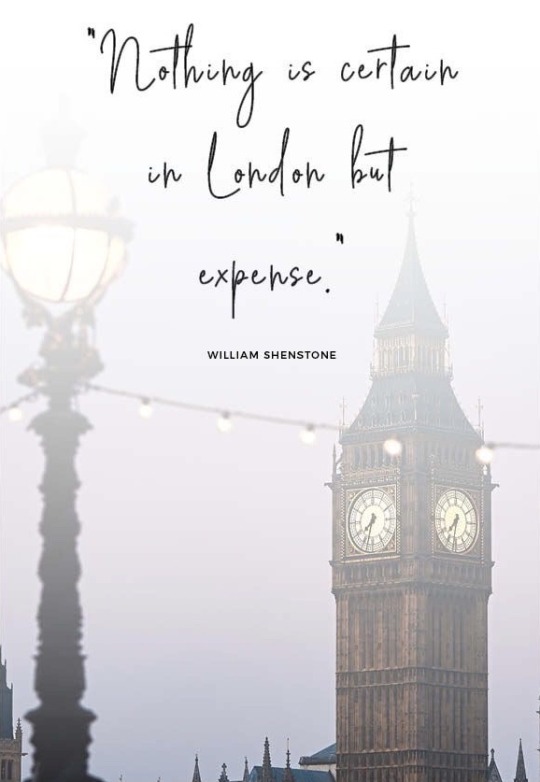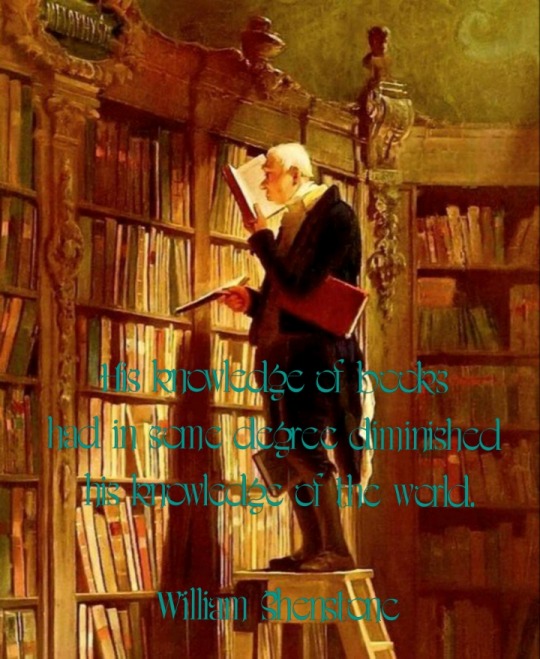#william shenstone
Text

1 note
·
View note
Text
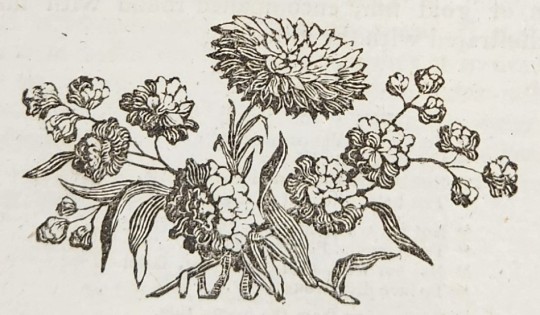
From: Shenstone, William, 1714-1763. The poetical works of Will. Shenstone. London : Printed for C. Cooke, 1795?
PR3677 .A1 1795
#endpiece#woodcut#flowers#floral#english#1790s#late18thcentury#floralfriday#florafriday#fridayflowers#rarebooks#specialcollections#libraryofva
210 notes
·
View notes
Text
Second thoughts oftentimes are the very worst of all thoughts.
William Shenstone
21 notes
·
View notes
Text
~Unwinding Wisteria Lodge~
On Things Grotesque
I recently read a post on Wisteria Logde, another tale in the His Last Bow series. makes mention of the homoerotic subtext and ahem…sex toys. The dialogue is also very telling: Also, the question of what happened on April 27, 1891. Other than the ending of the War, not much. So, I played the Name Game, as I call it.
Wisteria Lodge
John Scott Eccles
Popham House
Aloysius Garcia
Don Juan Murillo aka The Tiger of San Pedro
Dolores
Sir Victor Durando
Marquess Montalva
Wisteria Lodge. While the plant alludes to deep passion, the vines represent the choking aspect those passions can cause. So, that house is trouble.
John Scott Eccles
Taking a closer look at John Scott Eccles, it might be thought to be connected to Ecclesiastes, but no. So John Scott. After a few searches, of course, with the last name of Scott, a poet pops up. John Scott of Amwell. Scott was a a Quaker Poet. He wrote a type of poetry, called Eclogues. John Scott Eccles-Eclogues.
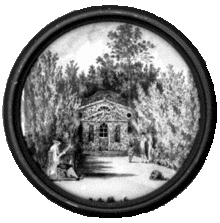
Engraving of Scott’s Grotto at Amwell
“Scott stayed at home and undertook the improvement of the grounds from 1760, modelling them on those of William Shenstone at the Leasowes, which he visited. Its principal feature was a grotto consisting of six subterranean rooms whose surfaces were covered in flints, shells and minerals,
Where glossy pebbles pave the varied floors,
And rough flint-walls are deck’d with shells and ores,
And silvery pearls, spread o'er the roofs on high,
Glimmer like faint stars in a twilight sky.
His poem “The Garden” goes on to reject the formal style of garden for Shenstone’s ideal of a managed wilderness. On visiting it, the celebrated Samuel Johnson (a major inspiration for the character Sherlock Holmes)declared that “none but a poet could have made such a garden.” The grotto continued as a tourist attraction into Victorian times but, having then fallen out of use, was restored in 1991 as “the most complete of the grotto-builder’s art”
Here is an interesting piece about his hand in landscaping
SCOTT’S GROTTO
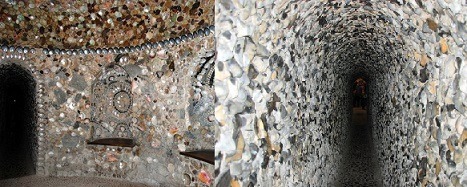
“Begun in the 1760s by Quaker, poet and businessman John Scott, the shell grotto was a fashionable garden decoration for the upperclass of 1700s England. However, John Scott went a few steps further than the usual garden grotto, having six interconnected chambers and sixty-seven feet of tunnel dug into the chalk hillside below his garden.
Decorated with shells, broken glass, flint, fossils and other beautiful stones pressed into the cement walls, in one chamber a seat bears the word “Frog,” referring to a nickname of Scott’s wife, Sarah Frogley. Dr. Johnson called the Grotto a “fairy hall.”
There are a number of theories as to why Scott built the extensive grotto - a cool place to read in summer, a quiet place to write poetry, a reason for friends to visit the Quaker poet who disliked going to London - all of which may be true.
However the most interesting and charitable of the reasons is that, as a wealthy and devout Quaker, Scott felt it his duty to provide employment for the unemployed men of the area. If this is the case he certainly succeeded; the grotto is thought to have taken thirty years to complete.”
Why am I babbling about gardens and English grottos, even though technically, it is an interesting subject. There is an art installation just like this squeezed into downtown Philly.
Literary works of mixed genre are occasionally termed grotesque, as are "low" or non-literary genres such as pantomime and farce.[20] Gothic writings often have grotesque components in terms of character, style and location. In other cases, the environment described may be grotesque - whether urban (Charles Dickens), or the literature of the American south which has sometimes been termed "Southern Gothic". Sometimes the grotesque in literature has been explored in terms of social and cultural formations such as the carnival(-esque) in François Rabelais and Mikhail Bakhtin. Terry Castle has written on the relationship between metamorphosis, literary writings and masquerade.[21]
1. The Singular Experience of Mr. John Scott Eccles
I find it recorded in my notebook that it was a bleak and windy day towards the end of March in the year 1892. Holmes had received a telegram while we sat at our lunch, and he had scribbled a reply. He made no remark, but the matter remained in his thoughts, for he stood in front of the fire afterwards with a thoughtful face, smoking his pipe, and casting an occasional glance at the message. Suddenly he turned upon me with a mischievous twinkle in his eyes.
"I suppose, Watson, we must look upon you as a man of letters," said he. "How do you define the word 'grotesque'?"
"Strange--remarkable," I suggested.
He shook his head at my definition.
Loreandlit makes the remarkable comment how right here, Holmes seems to change the definition of the word, to something darker, more sinister.
"There is surely something more than that," said he; "some underlying suggestion of the tragic and the terrible. If you cast your mind back to some of those narratives with which you have afflicted a long-suffering public, you will recognize how often the grotesque has deepened into the criminal. Think of that little affair of the red-headed men. That was grotesque enough in the outset, and yet it ended in a desperate attempt at robbery. Or, again, there was that most grotesque affair of the five orange pips, which let straight to a murderous conspiracy. The word puts me on the alert."
"Have you it there?" I asked.
He read the telegram aloud.
"Have just had most incredible and grotesque experience. May I consult you?
"Scott Eccles, "Post Office, Charing Cross."
nekosmuse.com shows through the text itself, the close relationship between Mr. Eccles and Garcia.
I am a bachelor," said he, "and being of a sociable turn I cultivate a large number of friends. Among these are the family of a retired brewer called Melville, living at Albemarle Mansion, Kensington. It was at his table that I met some weeks ago a young fellow named Garcia. He was, I understood, of Spanish descent and connected in some way with the embassy. He spoke perfect English, was pleasing in his manners, and as good-looking a man as ever I saw in my life."
Eccles goes on to tell us:
"In some way we struck up quite a friendship, this young fellow and I. He seemed to take a fancy to me from the first."
Mr. Melville (Henry Dundas , the viscount of Melville) This man is very interesting and looms large in British history.
Aloysius Garcia I believe this character might actually represent a King of France. To follow, from Wiki..."Aloysius is a given name. It is a Latinisation of the names Louis, Lewis, Luis, Luigi, Ludwig, and other cognate names (traditionally in Medieval Latin as Ludovicus or Chlodovechus), ultimately from Frankish." So, Louis. From Behinthename.com..."Garçon French, from Old French garçun, servant, accusative of gars, boy, soldier. The olde french word is thought to be of Germanic origin, akin to the OHG hrechjo, fugitive. Could it be that the word Garcia has the Latin suffix "ia" meaning to come from? Could it mean "from exile"? It would be normal since Gaulish, German, Frankish and Old French all have Latin influences. The name does not have any particular meaning except if you attribute it to a French/Germanic origin. In Spanish or in any other language this word does not make sense at all. You have the Spanish adaptation Garcez which is completely clear to mean son of Garcia. I suspect that Garcia is actually a Frankish word meaning "Son/Descendant of Exiles". So, A son of exiles. From wiki..."Louis XVIII (Louis Stanislas Xavier; 17 November 1755 – 16 September 1824), known as "The Desired" (le Désiré),[1][2] was a monarch of the House of Bourbon who ruled as King of France from 1814 to 1824, except for a period in 1815 known as the Hundred Days. He spent twenty-three years in exile, from 1791 to 1814, during the French Revolution and the First French Empire, and again in 1815, during the period of the Hundred Days, upon the return of Napoleon I from Elba." I'm going with Garcia actually representing the French throne.
Don Juan Murillo "During the greater part of this year there were three Dictators exercising powers concurrently in different parts of the country. Mariana Ospina was the "duly elected President," representing the clericals; Murillo representing liberals, and Mosquera the moderates, were opposing Presidents." I think this is the Murillo being spoke about. My theory is he is also linked to this Saint.
I believe with the two of these characters, that they are inverted. They both display actions that are the opposite of the saints their names are linked to. Meaning, they are no angels.
There was a Colonel Carruthers a part of The Queen's (Royal West Surrey Regiment), who have been enlisted during the Second Boer War.
1 note
·
View note
Text
Birthdays 11.18
Beer Birthdays
Charles Buxton (1823)
Florentinus De Boeck (1826)
Eugene Hack (1840)
Henry F. Hagemeister (1855)
Peter Hoey (1979)
Rob Kent
Robin Goldstein
Five Favorite Birthdays
Margaret Atwood; Canadian writer (1939)
Alan Moore; writer (1953)
Graham Parker; rock singer, songwriter (1950)
Alan Shepard; astronaut (1923)
Carl Maria von Weber; composer (1786)
Famous Birthdays
Hank Ballard; singer, songwriter (1927)
Don Cherry; jazz trumpeter (1936)
Imogene Coca; actor, comedian (1908)
Louis Daguerre; photography pioneer (1789)
Dorothy Dix; journalist (1861)
Mike Epps; comedian (1970)
Linda Evans; actor (1942)
Alan Dean Foster; writer (1948)
George H. Gallup; pollster (1901)
W.S. Gilbert; English lyricist (1836)
Asa Gray; botanist (1810)
David Hemmings; English actor (1941)
August Kundt; German physicist (1839)
Wyndham Lewis; English artist (1882)
Delroy Lindo; actor (1952)
Johnny Mercer; songwriter (1909)
Mickey Mouse; cartoon character (1928)
Kevin Nealon; comedian, actor (1953)
Eugene Ormandy; orchestra conductor (1899)
David Ortiz; Boston Red Sox 1B (1975)
Ignace Paderewski; pianist, composer (1860)
Elizabeth Perkins; actor (1960)
Chloe Sevigny; actor (1974)
Duncan Sheik; pop singer, songwriter (1969)
William Shenstone; Scottish writer (1714)
Sojourner Truth; abolitionist (1797)
Brenda Vaccaro; actor (1939)
Kim Wilde; English pop singer (1960)
David Wilkie; Scottish artist (1785)
Owen Wilson; actor (1968)
Peta Wilson; actor (1970)
0 notes
Photo
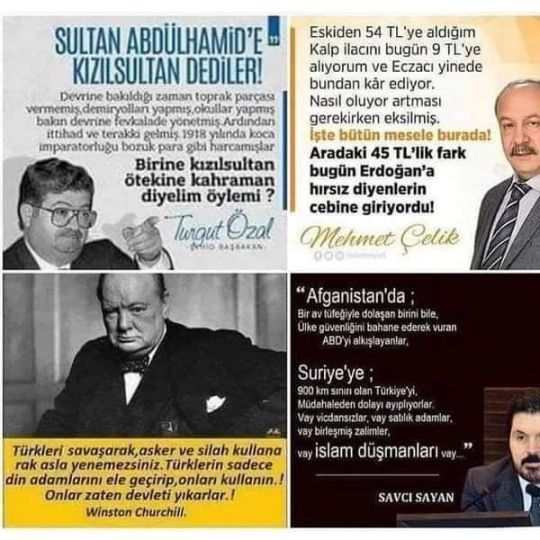
Vatan için ölmek de var fakat borcun yaşamaktır. Tevfik Fikret Türk, çetin işler başarmak için yaratılmıştır. Vatan sevgisi imandan gelir. Hz. Muhammed Vatan çalışkan insanların omuzları üstünde yükselir. Tevfik Fikret Eğer vatan tehlikede ise her şey vatana aittir. George Jacques Danton Muhtaç olduğun kudret, damarlarındaki asil kanda mevcuttur. Toprak eğer uğrunda ölen varsa vatandır. Mithat Cemal Kuntay Vatan için katlanılan ölüm kadar tatlı ve şerefli bir ölüm var mıdır? İstanbul’da çıkan bir dergiyi Kaşgar’daki bir Türk de anlayacaktır. Vatan sıhhate benzer değeri kaybedilince anlaşılır. Süleyman Nazif Temeli yüksek Türk kültürü olan Türk milletine düşen görev, bu ülkünün gereğini yerine getirmektir. Vatan aşkını artırmak için en emin yol bir müddet yabancı bir memlekette kalmaktır. William Shenstone Türklerden başka dini ve vatanı uğruna canını vermeye hazır asker görmedim. Hamilton. Rabbimiz, milletçe yar ve yardımcımız olsun. Bizleri tüm kötülüklerden, ihanetlerden ve fitnelerden korusun, Bizlere tüm iyilikleri nasip etsin. Amin inşaAllah. En içten dileklerimle selam, sevgi, saygı ve dua ile. https://www.instagram.com/p/CjdoxdEjWgu/?igshid=NGJjMDIxMWI=
0 notes
Photo
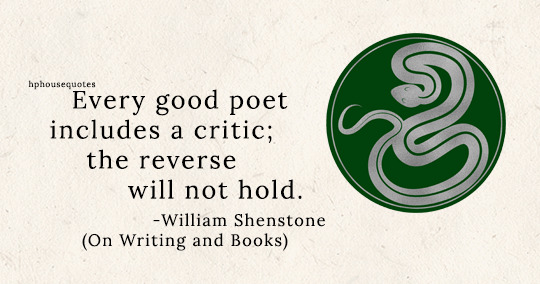
SLYTHERIN: "Every good poet includes a critic; the reverse will not hold." –William Shenstone (On Writing and Books)
106 notes
·
View notes
Photo

So sweetly she bade me adieu,
I thought that she bade me return.
- William Shenstone
#shenstone#william shenstone#quote#poem#scottish#femme#beauty#landscape#countryside#rural#britain#partings
76 notes
·
View notes
Text
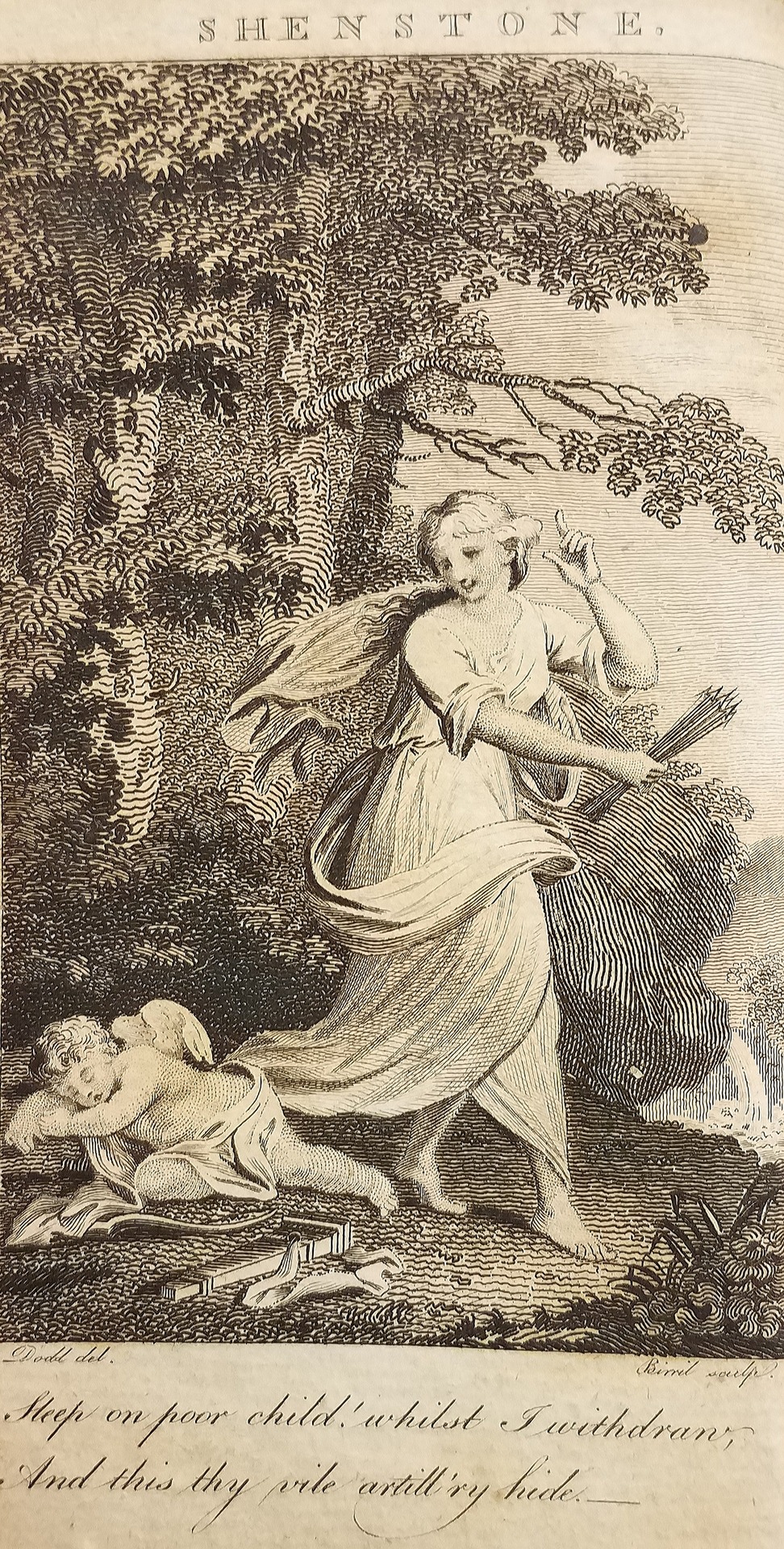
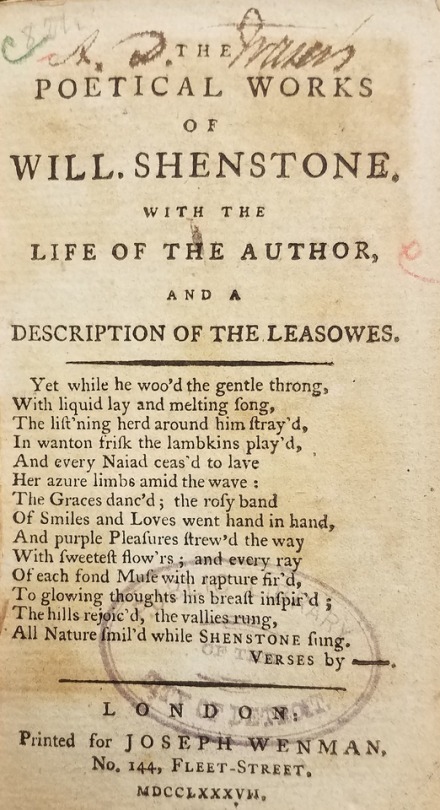
William Shenstone (18 November 1714 – 11 February 1763)
English poet and one of the earliest practitioners of landscape gardening through the development of his estate, The Leasowes. (Wikipedia)
From our stacks: Frontispiece “Shenstone, Dodd del. Birril sculp. ‘Sleep on poor child! whilst I withdraw, And this thy vile artill’ry hide.’” and title page from The Poetical Works of Will. Shenstone. With the Life of the Author, and a Description of the Leasowes. London: Joseph Wenman, 1787.
#william shenstone#poet#poetry#books#literature#english literature#book#literary#old books#poem#poems#english poetry#english poet#poetsofig#poets#english poets#18th century#18th century books#library books#shenstone#leasowes
46 notes
·
View notes
Text

From: Shenstone, William, 1714-1763. The poetical works of Will. Shenstone. London : Printed for C. Cooke, 1795?
PR3677 .A1 1795
#endpiece#woodcut#flowers#floral#english#1790s#late18thcentury#rarebooks#specialcollections#libraryofva
140 notes
·
View notes
Quote
Jealousy is the fear or apprehension of superiority: envy our uneasiness under it.
William Shenstone
0 notes
Text
Birthdays 11.18
Beer Birthdays
Charles Buxton (1823)
Florentinus De Boeck (1826)
Eugene Hack (1840)
Henry F. Hagemeister (1855)
Peter Hoey (1979)
Rob Kent
Robin Goldstein
Five Favorite Birthdays
Alan Moore; writer (1953)
Mickey Mouse; cartoon character (1928)
Graham Parker; rock singer, songwriter (1950)
Alan Shepard; astronaut (1923)
Carl Maria von Weber; composer (1786)
Famous Birthdays
Margaret Atwood; Canadian writer (1939)
Hank Ballard; singer, songwriter (1927)
Don Cherry; jazz trumpeter (1936)
Imogene Coca; actor, comedian (1908)
Louis Daguerre; photography pioneer (1789)
Dorothy Dix; journalist (1861)
Mike Epps; comedian (1970)
Linda Evans; actor (1942)
Alan Dean Foster; writer (1948)
George H. Gallup; pollster (1901)
W.S. Gilbert; English lyricist (1836)
Asa Gray; botanist (1810)
David Hemmings; English actor (1941)
August Kundt; German physicist (1839)
Wyndham Lewis; English artist (1882)
Delroy Lindo; actor (1952)
Johnny Mercer; songwriter (1909)
Kevin Nealon; comedian, actor (1953)
Eugene Ormandy; orchestra conductor (1899)
David Ortiz; Boston Red Sox 1B (1975)
Ignace Paderewski; pianist, composer (1860)
Elizabeth Perkins; actor (1960)
Chloe Sevigny; actor (1974)
Duncan Sheik; pop singer, songwriter (1969)
William Shenstone; Scottish writer (1714)
Sojourner Truth; abolitionist (1797)
Brenda Vaccaro; actor (1939)
Kim Wilde; English pop singer (1960)
David Wilkie; Scottish artist (1785)
Owen Wilson; actor (1968)
Peta Wilson; actor (1970)
1 note
·
View note
Photo
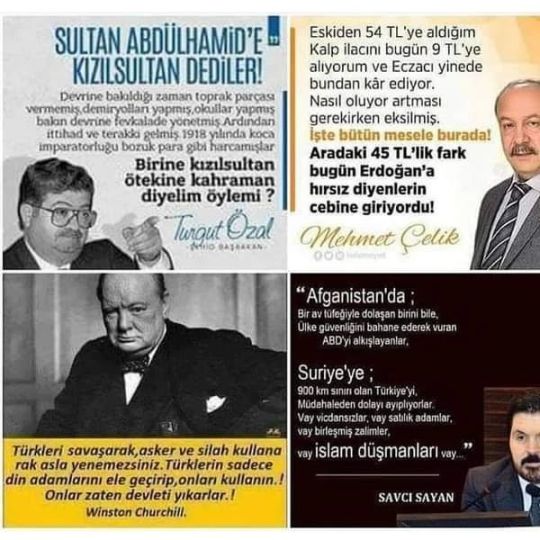
Vatan için ölmek de var fakat borcun yaşamaktır. Tevfik Fikret Türk, çetin işler başarmak için yaratılmıştır. Vatan sevgisi imandan gelir. Hz. Muhammed Vatan çalışkan insanların omuzları üstünde yükselir. Tevfik Fikret Eğer vatan tehlikede ise her şey vatana aittir. George Jacques Danton Muhtaç olduğun kudret, damarlarındaki asil kanda mevcuttur. Toprak eğer uğrunda ölen varsa vatandır. Mithat Cemal Kuntay Vatan için katlanılan ölüm kadar tatlı ve şerefli bir ölüm var mıdır? İstanbul’da çıkan bir dergiyi Kaşgar’daki bir Türk de anlayacaktır. Vatan sıhhate benzer değeri kaybedilince anlaşılır. Süleyman Nazif Temeli yüksek Türk kültürü olan Türk milletine düşen görev, bu ülkünün gereğini yerine getirmektir. Vatan aşkını artırmak için en emin yol bir müddet yabancı bir memlekette kalmaktır. William Shenstone Türklerden başka dini ve vatanı uğruna canını vermeye hazır asker görmedim. Hamilton. Rabbimiz, milletçe yar ve yardımcımız olsun. Bizleri tüm kötülüklerden, ihanetlerden ve fitnelerden korusun, Bizlere tüm iyilikleri nasip etsin. Amin inşaAllah. En içten dileklerimle selam, sevgi, saygı ve dua ile. https://www.instagram.com/p/CjbTA1cK1j_/?igshid=NGJjMDIxMWI=
0 notes
Photo
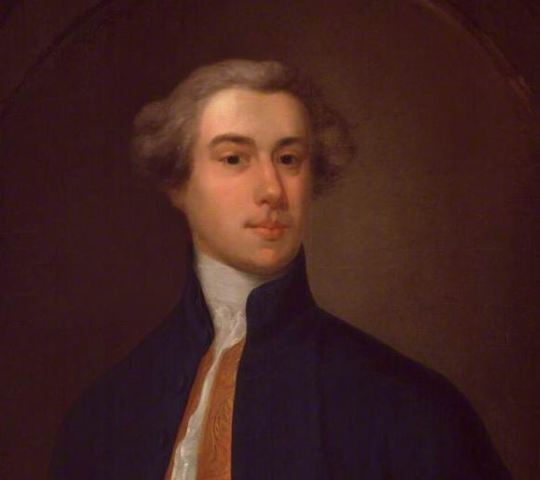
“Virtues, like essences, lose their fragrance when exposed.” "Virtues, like essences, lose their fragrance when exposed." William Shenstone, poet, “Essays on Men and Manners”, 1804
0 notes
